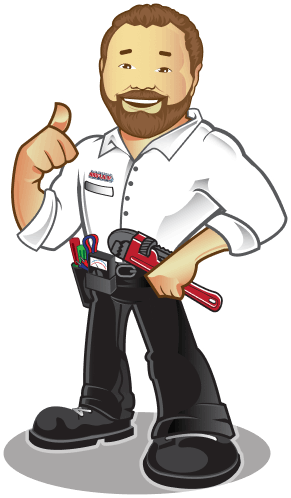What Is A Short Circuit And How Can You Prevent It?
We’ve all experienced this at some point, or at least seen it in the movies; the power goes out, someone yells “Must be a short, I’ll check the circuit breaker!” Short circuits are actually fairly common, but they can be dangerous and a warning sign of an electrical hazard, so it’s important to know what short circuits are and how you can prevent them in your home!
What IS A Short Circuit?
A short circuit happens when an electrical current flows outside of it’s intended circuit with no resistance to the flow. A short is actually a safety measure, so when the wires get too hot, the circuit breaker is tripped, causing the flow of electricity to stop. So while short circuits seem like a hassle, it actually means your electrical system is experiencing an issue and has stopped electricity for your safety. If the current was able to continue its problematic flow, it could heat up and cause a fire.
If you’re experiencing continued short circuits, it’s likely that there is an underlying issue with your electrical system. In addition to having an electrician take a look at your system, here are a few simple things you can do to prevent short circuits:
1. Schedule An Electrical Inspection Annually
If you don’t have a service plan with a trusted home comfort service company, that is an important part of maintaining your home. Having your home comfort systems inspected once a year is critical to function and safety, especially with your electrical system as home electrical fires can be a common occurrence.
2. Examine Your Outlets
Some of the most common causes of short circuits are wiring issues. Loose connections, faulty wiring, and aging outlets can all cause shorts. Although diagnosing some of these issues can be difficult, there are a few things you can check your outlets for to determine if there’s risk involved.
-Burn marks or burning smell coming from the outlet
-Popping or buzzing sounds from the outlet
-Sparks when you plug something into the outlet
-Outlet is over 15 years old.
3. Check Out Your Appliances
Sometimes the cause of the short is not the electrical system, but the appliance itself. Be sure to check for damaged cords, cracks in the appliance, or exposed circuits before plugging anything into your outlets.
4. Circuit Breaker Maintenance
The flow of electricity in short circuits is stopped by the circuit breaker, so be sure that it’s maintained so that it can protect your home. It’s a good idea to check it for damage like loose fittings or cracks. Be sure you know what circuit each breaker controls. Most circuit breaker boards have labels by each breaker. If your home is not labeled, have an electrician come out to identify each one.
Your home’s electrical safety translates to the safety of you and your family. If you have questions about your circuit breaker, electrical panel, or anything concerning short circuits and your electrical system, call on our knowledgeable electricians to help keep your home safe and efficient!













